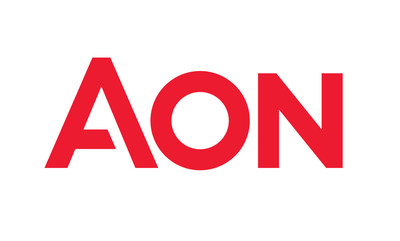
Published on: Tuesday, Tue, 29 Jul 2025 ● 5 Min Read
Global survey of benefits professionals found only 14 percent of multinationals have global guidelines in place to support personalization
DUBLIN, July 29, 2025 -- Aon plc (NYSE: AON), a leading global professional services firm, today released its 2025 Global Benefits Trends Study, which finds that multinational companies are under mounting pressure to offer personalized, inclusive benefits – yet most lack the governance, tools or frameworks to deliver at scale. The study, based on responses from more than 500 global benefits professionals across 45 countries and 16 industries, reveals that only 14 percent of multinationals have global guidelines in place to support personalization, while 65 percent of employees at multinationals would trade current benefits for more choice.
According to the study, cost management is the top priority for 70 percent of multinationals, with medical inflation cited as the key cost driver. But delivering employee value has surged to the forefront of the strategic agenda, now ranking among the top three objectives for benefits leaders. This disconnect underscores a new challenge for global benefits leaders: meeting rising employee expectations for flexibility while managing escalating costs. Seventy seven percent of survey respondents plan to negotiate their costs with existing benefits vendors and 67 percent plan to issue an RFP for benefits vendors.
"Employees increasingly expect a consumer-grade experience when it comes to their benefits – one that offers meaningful choice, creates innovative solutions and aligns with their individual needs," said Michael Pedel, head of global benefits at Aon. "Companies are moving in that direction and communicating their progress, but must also manage the realities of cost and complexity. The opportunity lies in designing programs that deliver both value and efficiency at scale."
Personalization and Inclusion: Expanding the Definition of Employee Value
Personalization increasingly incorporates inclusive benefits that address the diverse needs of today's workforce. Aon's study found that nearly two-thirds of leading companies (a select group of respondents with mature governance structures, integrated data strategies and executive-level alignment) plan to expand offerings focused on families (54 percent), aging (39 percent), gender (39 percent) and employees at lower income levels (39 percent). To balance these investments, 25 percent of survey recipients said they would reduce levels for benefits that are less valued by employees. These efforts reflect a broader shift: as employees seek consumer-grade experiences, they also expect benefits that align with their individual circumstances and values.
Personalized and inclusive benefits are also increasingly tied to wellbeing strategies, with 37 percent of companies actively considering initiatives that integrate health and work-life balance.
Overcoming Barriers to Personalization
While demand for personalized benefits is accelerating, most organizations face structural and operational challenges in scaling these offerings. While nearly half of companies have indicated that they already have a global benefits strategy, only 25 percent of global benefits leaders say their governance structure enables them to meet their objectives. By comparison, leading companies are three times more likely to have formal governance committees and twice as likely to centralize data and decision-making resulting in stronger alignment, cost savings and more stable benefits delivery. These top companies are also 67 percent more likely to have Global Benefits Centers of Excellence and three times more likely to have had their global benefits strategy and governance reviewed and endorsed by senior management, resulting in greater buy-in.
Technology, including artificial intelligence, presents a significant opportunity to deliver employee value while creating cost efficiencies. Leading companies are more than twice as likely to use tech to enable personalized experiences. However, only one in six benefits teams currently use AI to support benefits design or delivery. That figure is expected to nearly triple by 2027, but adoption is still limited by legacy systems, governance challenges and organizational readiness.
"This year's study confirms what many global benefits leaders already feel, expectations are rising, but the tools and governance structures to meet them haven't kept pace," said Pedel. "To deliver real value, organizations must think beyond cost containment. That means embracing personalization, investing in inclusive benefits, leveraging data and analytics, and using technology and governance as strategic enablers. The companies that do this well aren't just managing benefits, they're shaping the future of work."
About the Study
The 2025 Global Benefits Trends Study surveyed 518 global benefits professionals across 45 countries and 16 industries between January 27 and February 28, 2025. Read the full study here.
About Aon
Aon plc (NYSE: AON) exists to shape decisions for the better — to protect and enrich the lives of people around the world. Through actionable analytic insight, globally integrated Risk Capital and Human Capital expertise, and locally relevant solutions, our colleagues provide clients in over 120 countries with the clarity and confidence to make better risk and people decisions that protect and grow their businesses.
Follow Aon on LinkedIn, X, Facebook and Instagram. Stay up-to-date by visiting Aon's newsroom and sign up for news alerts here.
Media Contact
mediainquiries@aon.com
Toll-free (U.S., Canada and Puerto Rico): +1 833 751 8114
International: +1 312 381 3024

Logo - https://mma.prnewswire.com/media/1632623/Aon_Logo_2.jpg
![]() View original content:https://www.prnewswire.co.uk/news-releases/companies-struggle-to-meet-rising-demand-for-personalized-benefits-aon-survey-finds-302515373.html
View original content:https://www.prnewswire.co.uk/news-releases/companies-struggle-to-meet-rising-demand-for-personalized-benefits-aon-survey-finds-302515373.html
